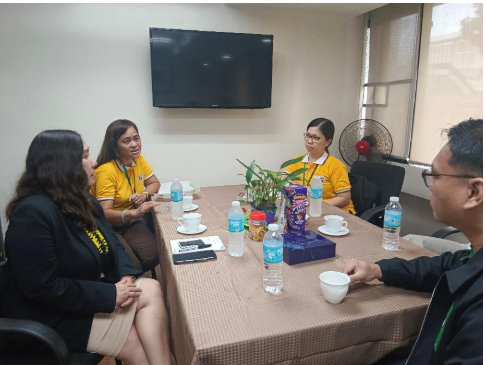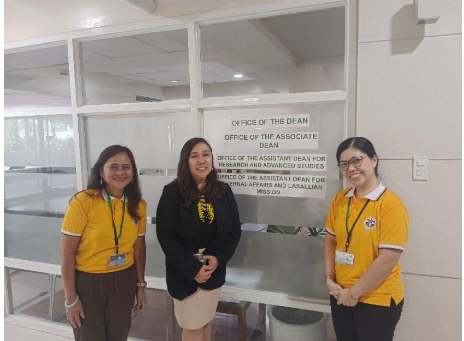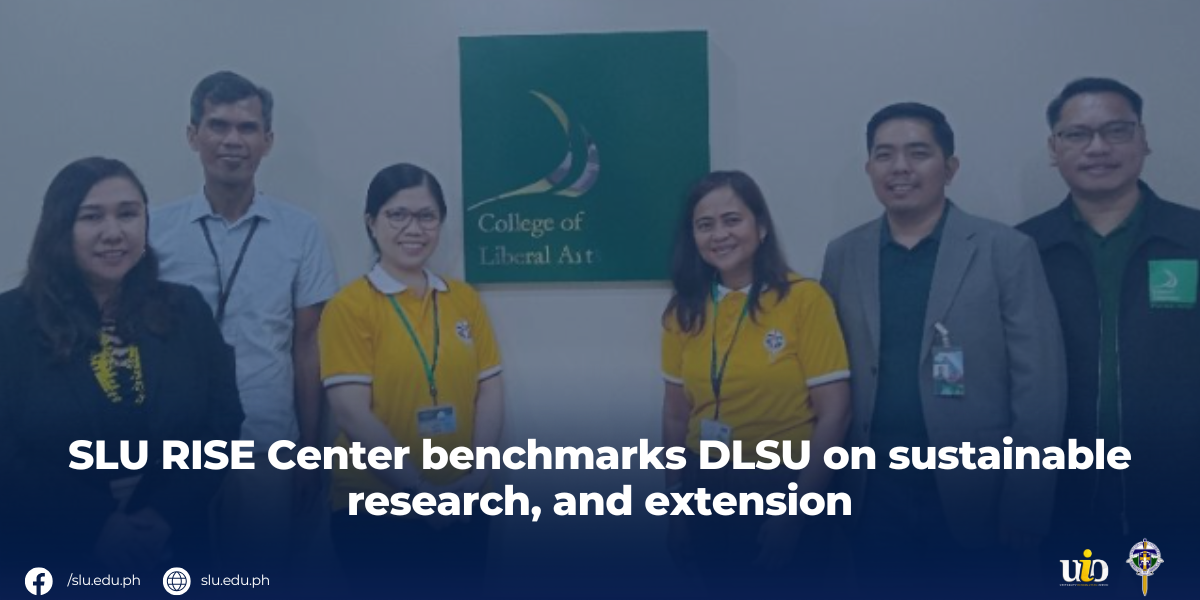In line with its mission to strengthen the integration of research, instruction, and extension, the Research, Innovation, & Sustainable Extension (RISE) Center of Saint Louis University (SLU) conducted a benchmarking activity at De La Salle University (DLSU) on 10 September 2025. The activity served as a platform to learn from DLSU’s best practices in research culture, faculty development, and extension programs, valuable insights that will guide SLU’s ongoing efforts to foster sustainable and socially relevant scholarship. Representing the RISE Center were Richel L. Lamadrid, PhD, SLU RISE Center Director, and Jeramie N. Molino, PHD Sustainable Research Extension Officer.
Building a Strong Research Culture
Discussions with Agnes Brazal, PhD and Rito Baring, PhD, both esteemed professors and active researchers from the Department of Theology and Religious Education, highlighted DLSU’s deliberate strategy in fostering a supportive research environment. As prolific writers and contributors to academic publications, they underscored that faculty workload at DLSU is structured to prioritize research, followed by teaching and extension. This balance ensures that faculty members have the necessary time, incentives, and opportunities to publish their work, present at conferences, and pursue scholarships.
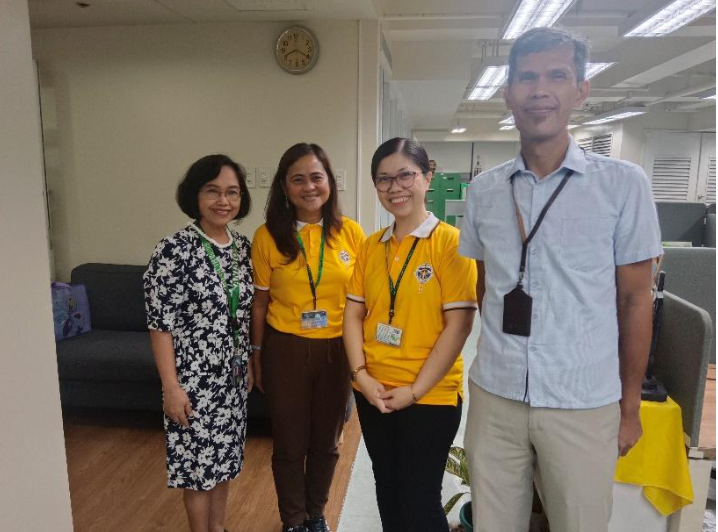
They further emphasized the value of cultivating research through a small core group of faculty “star performers”, those who consistently produce publications and lead in research initiatives, who can inspire others and gradually expand a research-oriented culture across departments.
Insights from the Social Development Research Center
At the Social Development Research Center (SDRC) – one of the many centers of DLSU, Director Homer Yabut, PhD and his team shared their research management model. The SDRC supports faculty in securing external funding, forming research groups, and drafting proposals. To sustain productivity, DLSU provides faculty with teaching deloading, financial rewards for publications, and even citation incentives.
Equally important, the SDRC directs its efforts toward socially relevant research areas such as public health, vulnerable populations, disaster resilience, and program evaluation. This approach mirrors the RISE Center’s mission of advancing research that directly benefits communities.
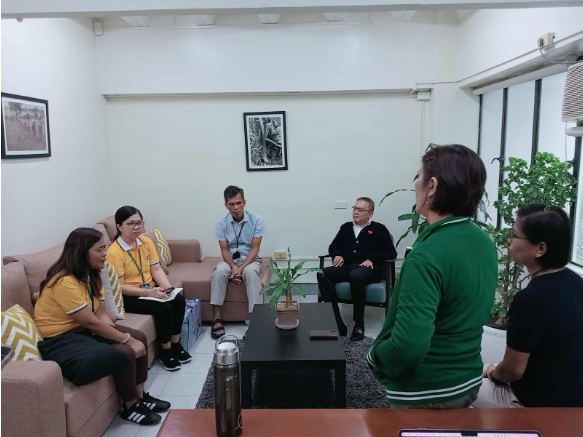
Research, Instruction, and Extension in Harmony
The benchmarking also included a meeting with the ean of the College of Liberal Arts, Ador Torneo, PhD and Assistant Dean for External Affairs and Lasallian Mission, Jeane Peracullo, PhD. They stressed the importance of aligning research with the university’s mission and integrating it with both instruction and extension.
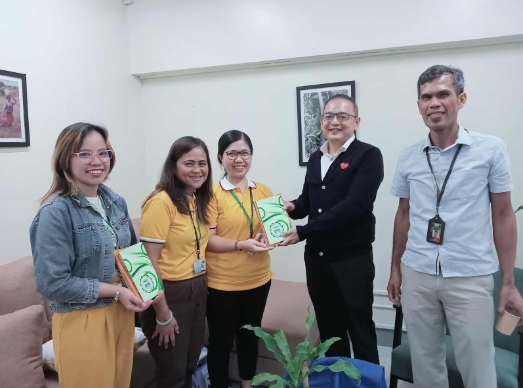
Their insights underscored that a successful research ecosystem requires impact studies, contextualized mission-driven research, faculty incentives, and robust infrastructure. They also shared how DLSU nurtures faculty development through training programs, workshops, and financial support. further reinforcing a culture of excellence.
Key Takeaways for SLU RISE Center
From these engagements, the RISE Center drew three key lessons that will guide its future initiatives: the importance of mindsetting to cultivate a strong and sustainable research culture; skill set development through continuous capacity-building, mentoring, and training; and the establishment of support systems that provide incentives, teaching deloading, funding, and infrastructure. Together, these insights will help SLU strengthen its research and extension impact, fostering innovation and socially responsive scholarship.
Moving Forward: Aligned with Global and Mission-Driven Goals
This benchmarking marks a significant step for the SLU RISE Center in its journey to advance sustainable research and extension. It is closely aligned with the UN Sustainable Development Goals 4 (Quality Education) and 17 (Partnerships for the Goals), the CICM advocacy for transformative education, the CEAP JEEPGY values of Justice, Ecological Integrity, and Good Governance, and the Laudato Si’ Goals on integral ecology and community engagement.
By learning from DLSU’s established practices, the RISE Center reinforces its commitment to innovation, academic excellence, and socially responsive research that not only advances SLU but also serves society at large. (Article and Photos by SLU RISE Center)
